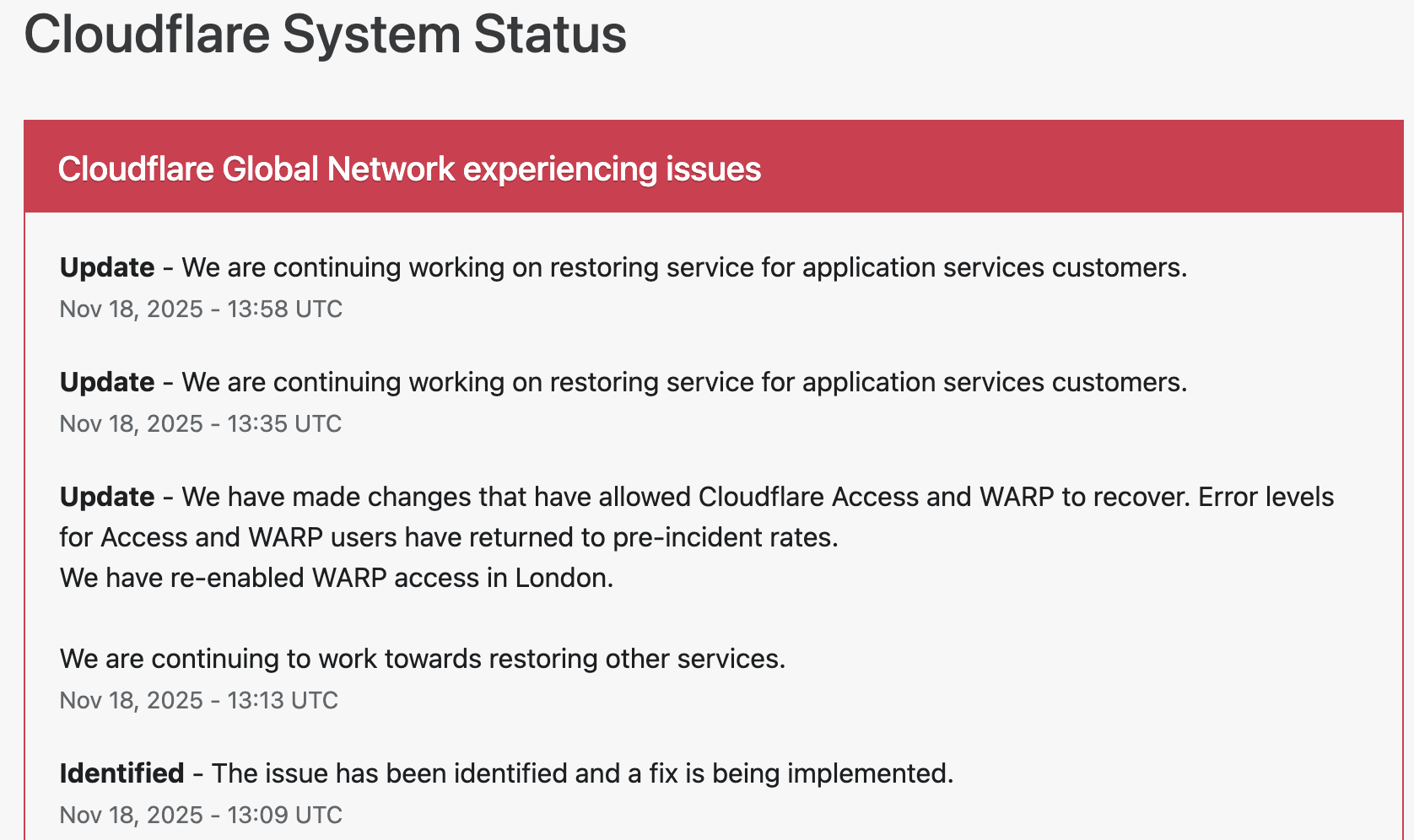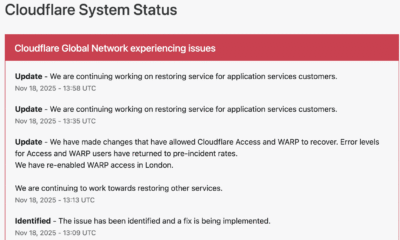data breaches
Unmasking Evil Corp: Sweeping Sanctions Target Russia’s Most Notorious Cybercrime Syndicate

In a major development in the fight against cybercrime, the United States, alongside the United Kingdom, has imposed sweeping sanctions on a notorious Russian cybercriminal gang known as “Evil Corp.” These sanctions mark a significant escalation in global efforts to counter one of the most prolific hacking organizations of the last decade.
A Decade of Cyber Heists
Evil Corp, often labeled as the “bank robbers of the internet,” is a Russian-based cybercriminal group notorious for their audacious heists and the monumental losses they have inflicted on financial institutions and businesses worldwide. This group has been linked to hundreds of millions of dollars in theft through sophisticated cyberattacks. Led by Maksim Yakubets, Evil Corp has been under the scrutiny of Western law enforcement for years, but recent sanctions represent one of the most coordinated moves against them to date.
The US Department of the Treasury’s Office of Foreign Assets Control (OFAC), in collaboration with the UK’s National Crime Agency (NCA), announced a series of sanctions that aim to freeze the group’s assets, cripple their financial operations, and prevent their members from accessing the international financial system. The sanctions extend to several individuals believed to be linked to Evil Corp, including its leadership and affiliates across Russia and neighboring countries.
The Long Arm of Sanctions
The US government has taken action under its Countering America’s Adversaries Through Sanctions Act (CAATSA) and the UK’s Anti-Money Laundering Act. This coordinated effort aims to disrupt Evil Corp’s ability to operate and capitalize on their cybercrime proceeds. In addition to financial sanctions, both the US and UK have imposed travel bans and asset freezes on numerous individuals and companies suspected of being involved in or supporting Evil Corp’s illicit activities.
Maksim Yakubets, identified as the ringleader of the group, has been a target of American law enforcement for years. Yakubets, who is known for his lavish lifestyle—including a penchant for exotic pets, luxury cars, and extravagant weddings—symbolizes the flamboyance often associated with high-ranking cybercriminals. The Department of Justice has offered a reward of up to $5 million for information leading to his capture, making him one of the most sought-after cybercriminals in the world.
Yakubets has also been linked to Russia’s Federal Security Service (FSB), and this connection further complicates international efforts to apprehend him. His group is believed to have worked with Russian intelligence to engage in cyber-espionage activities, adding an element of state-sponsored malfeasance to Evil Corp’s otherwise financially motivated campaigns.
A Legacy of Devastation
The core of Evil Corp’s operations centers on the use of Dridex, a form of malware first unleashed over a decade ago. Initially designed as a banking trojan, Dridex was used to steal credentials and siphon off millions from bank accounts around the globe. Its reach and sophistication have grown over the years, and it has been deployed in numerous phishing attacks that target both individual consumers and major corporations. Dridex’s adaptability has made it a formidable tool in the arsenal of cybercriminals.
Evil Corp’s activities have expanded beyond Dridex to include ransomware operations. They are known for deploying various ransomware strains, including WastedLocker, which has targeted US businesses, healthcare facilities, and local governments. The ransomware operations have caused widespread disruption, costing organizations millions in ransom payments, recovery costs, and system downtimes.
The group’s involvement in ransomware reflects the broader trend among cybercriminal organizations in shifting towards extortion-based models, which have become increasingly lucrative over the past few years. Evil Corp’s ransomware attacks have targeted industries ranging from healthcare to finance, manufacturing to retail, demonstrating their versatility and opportunism.
Implications of the Sanctions
Sanctions against Evil Corp represent a significant step in combatting international cybercrime, but their effectiveness remains to be seen. By targeting the finances of the group, Western governments hope to disrupt their ability to operate and diminish their resources. However, the decentralized nature of cybercriminal enterprises poses a challenge, as members can often adapt quickly, using cryptocurrency and other tools to obscure their financial dealings.
Moreover, many of the sanctioned individuals reside in Russia, a country known for providing a safe haven for hackers—as long as they do not target Russian entities. This political shielding complicates efforts to bring these individuals to justice. Despite the public naming and shaming, apprehending individuals like Yakubets remains a distant prospect unless there is a significant shift in international cooperation involving Russia.
The Broader Fight Against Cybercrime
The sanctions come amid heightened awareness of the threat posed by cybercrime, particularly as ransomware and other forms of cyberattacks have surged during the COVID-19 pandemic. With an increased dependence on digital infrastructure, the vulnerabilities exploited by groups like Evil Corp have come into sharper focus. Governments and private sectors alike are investing heavily in cybersecurity measures, but the challenges posed by state-tolerated actors like Evil Corp are difficult to mitigate.
The international community is slowly waking up to the necessity of a coordinated response to cyber threats. The sanctions are a clear message that governments are willing to leverage economic and diplomatic tools to combat cybercrime, though it is equally clear that such measures are only part of a larger puzzle. The capabilities of Evil Corp to continue their activities will depend largely on how resilient their networks are in the face of these economic disruptions.
Who Is Maksim Yakubets?
Maksim Yakubets, described by the Treasury as the “most prolific cybercriminal of the past decade,” has been at the center of Evil Corp’s operations since its inception. In addition to his cybercriminal activities, Yakubets has reportedly performed work for the FSB, indicating a crossover between traditional organized crime and government-sponsored cyber-espionage.
The flamboyant Yakubets is known for his outlandish lifestyle, often flaunting his wealth on social media. This visibility has made him a symbol of the new breed of cybercriminals—those who are not just motivated by financial gain but are also willing to embrace a public persona, confident in the protection offered by their home country. His public behavior and ties to the Russian government highlight the complexity of cybercrime in the 21st century, where the lines between state actors and criminal organizations are increasingly blurred.
International Reactions and Future Steps
The sanctions against Evil Corp have received praise from cybersecurity experts and international observers as a necessary move to curb the group’s influence. However, there is also a growing recognition that financial sanctions alone are not sufficient. The decentralized nature of cryptocurrency, combined with the use of offshore accounts, allows cybercriminals to continue their activities with a level of impunity.
To enhance the effectiveness of these sanctions, the international community will need to develop better ways of tracking and freezing digital assets. This might involve cooperation with major cryptocurrency exchanges, blockchain analysis firms, and more robust know-your-customer (KYC) protocols.
The challenge of attribution also remains a persistent issue. Evil Corp has consistently changed its methods and partnerships, complicating the task of law enforcement and making it harder to dismantle their networks completely. The recent sanctions are thus a step forward, but not a panacea for the challenges posed by such groups.
Public and Private Sector Cooperation
Moving forward, both public and private sectors must continue to collaborate to reduce vulnerabilities. Many of Evil Corp’s attacks have been successful due to outdated software, poor security practices, and a lack of awareness among victims. Governments are increasingly urging businesses to strengthen their defenses, but there is still a long way to go in terms of universal adoption of best practices.
The sanctions also serve as a stark reminder to companies about the risks associated with paying ransoms. By paying a ransom, organizations may inadvertently be supporting a group that is under international sanction, which could have legal consequences. The US government has reiterated its stance that paying a ransom not only encourages further attacks but could also violate sanctions laws.
Conclusion
The unmasking and sanctioning of Evil Corp represent a significant development in the international fight against cybercrime. While these measures may disrupt their operations, they are unlikely to fully dismantle the network. As cybercrime continues to evolve, so too must the methods used to combat it.
Evil Corp symbolizes the fusion of cybercriminal sophistication, audacious financial crime, and, potentially, state-backed espionage. Addressing this multifaceted threat will require continued international cooperation, technological innovation, and a firm stance on both economic and legal fronts. The story of Evil Corp is a reminder of the ongoing battle in cyberspace—a battle that is fought not just with code and firewalls but also with sanctions, diplomacy, and coordinated international action.
data breaches
Cloudflare Outage Disrupts Global Internet — Company Restores Services After Major Traffic Spike

November 18, 2025 — MAG212NEWS
A significant outage at Cloudflare, one of the world’s leading internet infrastructure providers, caused widespread disruptions across major websites and online services on Tuesday. The incident, which began mid-morning GMT, temporarily affected access to platforms including ChatGPT, X (formerly Twitter), and numerous business, government, and educational services that rely on Cloudflare’s network.
According to Cloudflare, the outage was triggered by a sudden spike in “unusual traffic” flowing into one of its core services. The surge caused internal components to return 500-series error messages, leaving users unable to access services across regions in Europe, the Middle East, Asia, and North America.
Impact Across the Web
Because Cloudflare provides DNS, CDN, DDoS mitigation, and security services for millions of domains — powering an estimated 20% of global web traffic — the outage had swift and wide-reaching effects.
Users reported:
- Website loading failures
- “Internal Server Error” and “Bad Gateway” messages
- Slowdowns on major social platforms
- Inaccessibility of online tools, APIs, and third-party authentication services
The outage also briefly disrupted Cloudflare’s own customer-support portal, highlighting the interconnected nature of the company’s service ecosystem.
Cloudflare’s Response and Restoration
Cloudflare responded within minutes, publishing updates on its official status page and confirming that engineering teams were investigating the anomaly.
The company took the following steps to restore operations:
1. Rapid Detection and Acknowledgement
Cloudflare engineers identified elevated error rates tied to an internal service degradation. Public communications were issued to confirm the outage and reassure customers.
2. Isolating the Affected Systems
To contain the disruption, Cloudflare temporarily disabled or modified specific services in impacted regions. Notably, the company deactivated its WARP secure-connection service for users in London to stabilize network behavior while the fix was deployed.
3. Implementing Targeted Fixes
Technical teams rolled out configuration changes to Cloudflare Access and WARP, which successfully reduced error rates and restored normal traffic flow. Services were gradually re-enabled once systems were verified stable.
4. Ongoing Root-Cause Investigation
While the unusual-traffic spike remains the confirmed trigger, Cloudflare stated that a full internal analysis is underway to determine the exact source and prevent a recurrence.
By early afternoon UTC, Cloudflare confirmed that systems had returned to pre-incident performance levels, and affected services worldwide began functioning normally.
Why This Matters
Tuesday’s outage underscores a critical truth about modern internet architecture: a handful of infrastructure companies underpin a massive portion of global online activity. When one of them experiences instability — even briefly — the ripple effects are immediate and worldwide.
For businesses, schools, governments, and content creators, the incident is a reminder of the importance of:
- Redundant DNS/CDN providers
- Disaster-recovery and failover plans
- Clear communication protocols during service outages
- Vendor-dependency risk assessments
Cloudflare emphasized that no evidence currently points to a cyberattack, though the nature of the traffic spike remains under investigation.
Looking Ahead
As Cloudflare completes its post-incident review, the company is expected to provide a detailed breakdown of the technical root cause and outline steps to harden its infrastructure. Given Cloudflare’s central role in global internet stability, analysts say the findings will be watched closely by governments, cybersecurity professionals, and enterprise clients.
For now, services are restored — but the outage serves as a powerful reminder of how interconnected and vulnerable the global web can be.
data breaches
Cloudflare Outage Analysis: Systemic Failure in Edge Challenge Mechanism Halts Global Traffic

SAN FRANCISCO, CA — A widespread disruption across major internet services, including AI platform ChatGPT and social media giant X (formerly Twitter), has drawn critical attention to the stability of core internet infrastructure. The cause traces back to a major service degradation at Cloudflare, the dominant content delivery network (CDN) and DDoS mitigation provider. Users attempting to access affected sites were met with an opaque, yet telling, error message: “Please unblock challenges.cloudflare.com to proceed.”
This incident was not a simple server crash but a systemic failure within the crucial Web Application Firewall (WAF) and bot management pipeline, resulting in a cascade of HTTP 5xx errors that effectively severed client-server connections for legitimate users.
The Mechanism of Failure: challenges.cloudflare.com
The error message observed globally points directly to a malfunction in Cloudflare’s automated challenge system. The subdomain challenges.cloudflare.com is central to the company’s security and bot defense strategy, acting as an intermediate validation step for traffic suspected of being malicious (bots, scrapers, or DDoS attacks).
This validation typically involves:
- Browser Integrity Check (BIC): A non-invasive test ensuring the client browser is legitimate.
- Managed Challenge: A dynamic, non-interactive proof-of-work check.
- Interactive Challenge (CAPTCHA): A final, user-facing verification mechanism.
In a healthy system, a user passing through Cloudflare’s edge network is either immediately granted access or temporarily routed to this challenge page for verification.
During the outage, however, the Challenge Logic itself appears to have failed at the edge of Cloudflare’s network. When the system was invoked (likely due to high load or a misconfiguration), the expected security response—a functional challenge page—returned an internal server error (a 500-level status code). This meant:
- The Request Loop: Legitimate traffic was correctly flagged for a challenge, but the server hosting the challenge mechanism failed to process or render the page correctly.
- The
HTTP 500Cascade: Instead of displaying the challenge, the Cloudflare edge server returned a “500 Internal Server Error” to the client, sometimes obfuscated by the text prompt to “unblock” the challenges domain. This effectively created a dead end, blocking authenticated users from proceeding to the origin server (e.g., OpenAI’s backend for ChatGPT).
Technical Impact on Global Services
The fallout underscored the concentration risk inherent in modern web architecture. As a reverse proxy, Cloudflare sits between the end-user and the origin server for a vast percentage of the internet.
For services like ChatGPT, which rely heavily on fast, secure, and authenticated API calls and constant data exchange, the WAF failure introduced severe latency and outright connection refusal. A failure in Cloudflare’s global network meant that fundamental features such as DNS resolution, TLS termination, and request routing were compromised, leading to:
- API Timeouts: Applications utilizing Cloudflare’s API for configuration or deployment experienced critical failures.
- Widespread Service Degradation: The systemic 5xx errors at the L7 (Application Layer) caused services to appear “down,” even if the underlying compute resources and databases of the origin servers remained fully operational.
Cloudflare’s official status updates confirmed they were investigating an issue impacting “multiple customers: Widespread 500 errors, Cloudflare Dashboard and API also failing.” While the exact trigger was later traced to an internal platform issue (in some historical Cloudflare incidents, this has been a BGP routing error or a misconfigured firewall rule pushed globally), the user-facing symptom highlighted the fragility of relying on a single third-party for security and content delivery on a global scale.
Mitigation and the Single Point of Failure
While Cloudflare teams worked to roll back configuration changes and isolate the fault domain, the incident renews discussion on the “single point of failure” doctrine. When a critical intermediary layer—responsible for security, routing, and caching—experiences a core logic failure, the entire digital economy resting on it is exposed.
Engineers and site reliability teams are now expected to further scrutinize multi-CDN and multi-cloud strategies, ensuring that critical application traffic paths are not entirely dependent on a single third-party’s edge infrastructure, a practice often challenging due to cost and operational complexity. The “unblock challenges” error serves as a stark reminder of the technical chasm between a user’s browser and the complex, interconnected security apparatus that underpins the modern web.
data breaches
Manufacturing Software at Risk from CVE-2025-5086 Exploit

Dassault Systèmes patches severe vulnerability in Apriso manufacturing software that could let attackers bypass authentication and compromise factories worldwide.
A newly disclosed flaw, tracked as CVE-2025-5086, poses a major security risk to manufacturers using Dassault Systèmes’ DELMIA Apriso platform. The bug could allow unauthenticated attackers to seize control of production environments, prompting urgent patching from the vendor and warnings from cybersecurity experts.
A critical vulnerability in DELMIA Apriso, a manufacturing execution system used by global industries, could let hackers bypass authentication and gain full access to sensitive production data, according to a security advisory published this week.
Dassault Systèmes confirmed the flaw, designated CVE-2025-5086, affects multiple versions of Apriso and scored 9.8 on the CVSS scale, placing it in the “critical” category. Researchers said the issue stems from improper authentication handling that allows remote attackers to execute privileged actions without valid credentials.
The company has released security updates and urged immediate deployment, warning that unpatched systems could become prime targets for industrial espionage or sabotage. The flaw is particularly alarming because Apriso integrates with enterprise resource planning (ERP), supply chain, and industrial control systems, giving attackers a potential foothold in critical infrastructure.
- “This is the kind of vulnerability that keeps CISOs awake at night,” said Maria Lopez, industrial cybersecurity analyst at Kaspersky ICS CERT. “If exploited, it could shut down production lines or manipulate output, creating enormous financial and safety risks.”
- “Manufacturing software has historically lagged behind IT security practices, making these flaws highly attractive to threat actors,” noted James Patel, senior researcher at SANS Institute.
- El Mostafa Ouchen, cybersecurity author, told MAG212News: “This case shows why manufacturing execution systems must adopt zero-trust principles. Attackers know that compromising production software can ripple across supply chains and economies.”
- “We are actively working with customers and partners to ensure systems are secured,” Dassault Systèmes said in a statement. “Patches and mitigations have been released, and we strongly recommend immediate updates.”
Technical Analysis
The flaw resides in Apriso’s authentication module. Improper input validation in login requests allows attackers to bypass session verification, enabling arbitrary code execution with administrative privileges. Successful exploitation could:
- Access or modify production databases.
- Inject malicious instructions into factory automation workflows.
- Escalate attacks into connected ERP and PLM systems.
Mitigations include applying vendor patches, segmenting Apriso servers from external networks, enforcing MFA on supporting infrastructure, and monitoring for abnormal authentication attempts.
Impact & Response
Organizations in automotive, aerospace, and logistics sectors are particularly exposed. Exploited at scale, the vulnerability could cause production delays, supply chain disruptions, and theft of intellectual property. Security teams are advised to scan their environments, apply updates, and coordinate incident response planning.
Background
This disclosure follows a string of high-severity flaws in industrial and operational technology (OT) software, including vulnerabilities in Siemens’ TIA Portal and Rockwell Automation controllers. Experts warn that adversaries—ranging from ransomware gangs to state-sponsored groups—are increasingly focusing on OT targets due to their high-value disruption potential.
Conclusion
The CVE-2025-5086 flaw underscores the urgency for manufacturers to prioritize cybersecurity in factory software. As digital transformation accelerates, securing industrial platforms like Apriso will be critical to ensuring business continuity and protecting global supply chains.

















